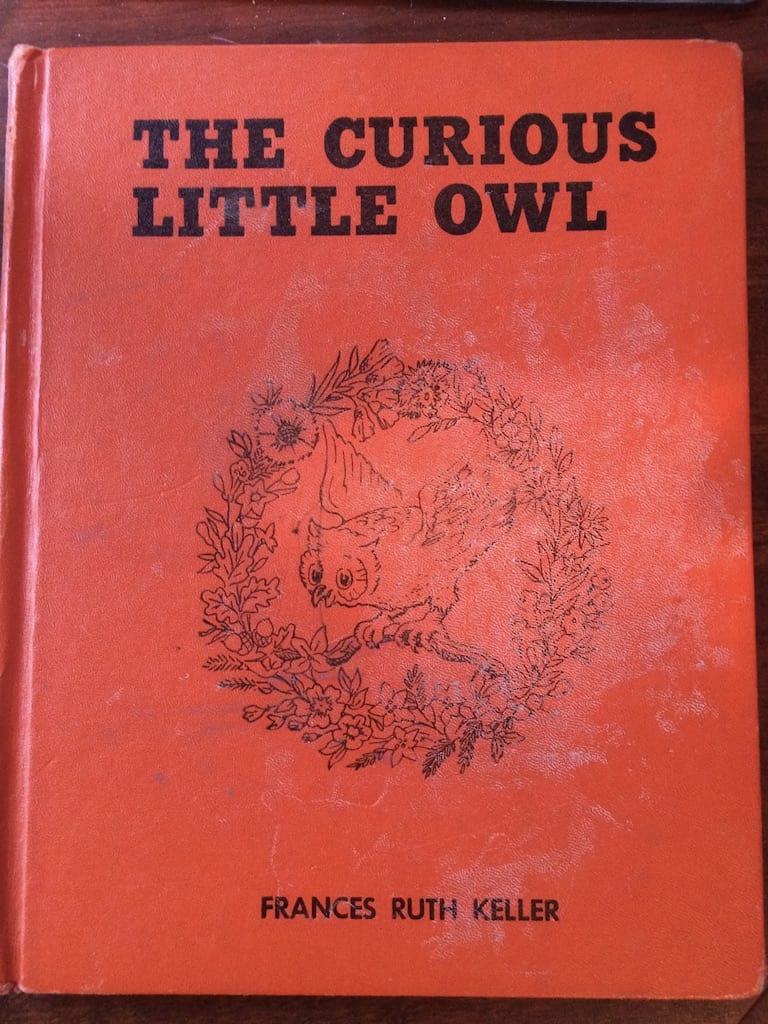 When I was six-years-old, my parents gave me a copy of The Curious Little Owl by Frances Ruth Keller.
When I was six-years-old, my parents gave me a copy of The Curious Little Owl by Frances Ruth Keller.
The story went like this. Once upon a time there was a family of owls: Father Owl, Mother Owl, and Little Owl. Though Mother and Father modeled the correct “Who? Who?” behavior when animals passed by, Little Owl said nothing. Mother Owl was worried about her son, but Father Owl was sure he would surprise them.
One day Little Owl saw a rabbit hopping along and cried, “Why? Why?” Oh, dear, that was not the surprise Father Owl had expected. Mother and Father explained that owls mustn’t say “Why,” only “Who” as a polite way of saying hello without expecting an answer.
Little Owl replied, “I can see who it is—I just wanted to know why…”
In her January 7, 2020 blog post, writer, editor, and coach Lisa Ellison wrote: “Every essay and story must contain a why. The why is the story’s point and the reason we should care about the work. It’s often phrased as why this, or why now, or why you. As the writer, it’s your job to clearly articulate the why of your writing in the most engaging way. But have you ever thought about the why of your writing life?”
Last week, I struggled to re-write the opening chapter of my faith memoir, because I haven’t quite found my writing’s point. Why this, why now, why me? I asked. When I began to question the why of my writing life, I consulted another authority: Andrew T. Le Peau.
In his book Write Better: A Lifelong Editor on Craft, Art, and Spirituality Le Peau asks, “Why did I write? Probably, first and foremost, I wrote it for myself. And that’s not a bad thing. I wanted something inside me to get out. So I did it. Was the process enjoyable? Did I improve my skills? Was I pleased with the result? Did I learn something along the way? Well, then, that’s worthwhile.”
The Why?
Lisa Ellison offered further insight. “In creative nonfiction, we excavate real life in search of truth. In fiction, we push past the bounds of reality as a way to exemplify truth. In poetry, we use space, brevity, and precision to laser in on something essential. The question is not whether the writing affects you, but what effect you want the writing to have on you and the reader.”
The Why? Why?
So, what happened to the Curious Little Owl who said, “Why? Why?”? Mother and Father told him to ask them his questions, which he did, often and sometimes without thinking, much to his parents’ distress. They sought help from Great-Grandfather Owl, who asked Little Owl why he said “Why?” instead of “Who?”
“I find out ever so many things that way,” Little Owl replied and told Great-Grandfather the many things he’d learned. Impressed, Great-Grandfather Owl advised Little Owl’s parents to answer their son’s questions, and if they were unable to answer them, send him to Great-Grandfather.
The old owl turned to Little Owl and said, “Of course, you must try to find the answers to your questions yourself, too, Little Owl. The answers that you find out for yourself you will learn best and remember longest.”
The sage advice transformed Little Owl. Now he shared this learning with the forest animals who consulted him.
The Curious Why? Why?
Click to view on YouTube: https://www.youtube.com/watch?v=-yJT0KUToh8&feature=youtu.be



Fascinating story! I have never read about “The Curious Little Owl.” Your discussion challenges me about the “why” in my own writing.
What a wonderful story! I sometimes seem to forget my “why”. It’s a good thing to think about. It should guide everything I write. Thank you for the good reminder!
Carole, I am a “why” asker myself. And, that leads me to discover much. I grew up in a home where legalism was stressed but where abuse was also dominant, and where people were expected to do things just because that’s what you do. But, I didn’t want to do things just because that was what was expected of me. I was an obedient child. If I had an inkling to be bad, I was too afraid to carry it out. So, I didn’t disobey, which is also how I got abused. But, I just wanted my “do’s” to mean something. I didn’t want to do something just because Aunt Jo or Uncle Henry always did it that way. I didn’t want to believe something just because I was told that was what I was to believe. I wanted to believe it because it was right. I wanted to do things because they mattered, and I wanted them to be real, not phony and not just routine or just repeating a bunch of words. So, I asked questions, and I examined things, and I learned that I was taught a lot of things wrong and I learned the right way and I did things because I answered the “why?” because I knew why I was doing them, for the most part, even if it was just to obey God even if I didn’t know all the ins and outs of what he was doing. And, I still ask a lot of “why” questions, even when I write, because I think it is important to know why we do what we do not just that we do them because everyone else does.
I used to think of it as “so what?” “Why?” Is an improvement I think. Thank you!